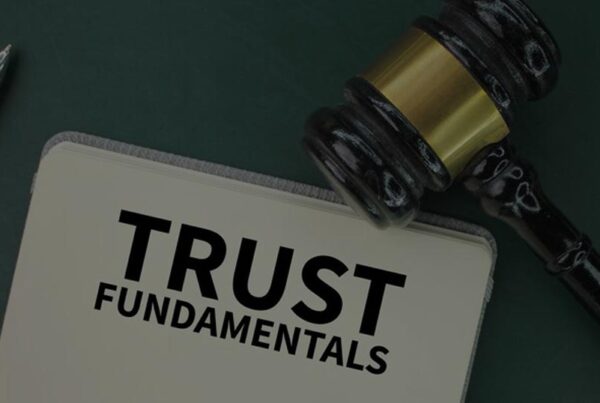WHITE COLLAR CRIMES
NOTE: This page contains additional materials to explain changes to U.S. federal law with the First Step Act (P.L. 115- 391). Since December 21, 2018, the First Step Act enacted a variety of modifications to the federal criminal justice system, such as expanding the sentencing credits available to offenders seeking early release.
Securities Fraud Elements, Penalties, & Sentencing
A federal case for securities fraud typically begins with an investigation by the Securities and Exchange Commission (SEC). The SEC is responsible for regulating financial markets through the enforcement of two federal acts:
- Securities Act of 1933. This act requires generally that all securities offered for sale must be registered. The seller must provide registration statements and prospectuses. These materials are available on SEC’s EDGAR database.
- Securities Exchange Act of 1934. This act governs corporate reporting (companies with $10 million in assets or 500 shareholders), proxy materials, tender offers (acquiring 5 percent or more of a company’s securities), insider trading, and registration of exchanges, brokers, dealers, transfer agents, and clearing agencies.
In its regulatory role, the SEC has legal authority to compel production of records and other disclosures, enjoin market activity, and seek civil penalties such as fines. These functions are civil in nature and, as such, do not implicate a penalty of imprisonment for a violation of federal securities laws.
However, the SEC can refer any alleged violation of securities laws over to the Department of Justice (DOJ) for criminal prosecution.
The [SEC] may transmit such evidence as may be available concerning such acts or practices as may constitute a violation of any provision of this chapter or the rules or regulations thereunder to the Attorney General [eg, DOJ], who may, in his discretion, institute the necessary criminal proceedings under this chapter.
See 15 USC 78u(d)(1).
The Securities Act of 1933 & the Securities Exchange Act of 1934
If pursued by the United States Attorney, a criminal prosecution would be based on the same statutes used by the SEC to regulate the market and its participants. The difference between enforcement by the SEC and prosecution by the US Attorney is relatively straightforward SEC enforcement addresses negligent violations of securities laws, whereas the US Attorney concerns itself with willful violations of those laws.
SEC enforcement is civil and can result in civil penalties only (fine, injunction, etc). Federal prosecution, however, is criminal. Therefore, the penalty can include a sentence in federal prison.
In general, prosecutions for violations of securities law typically involve two statutes:
- Section 17(a) of the Securities Act of 1933.
- Section 10(b) of the Securities Exchange Act of 1934, known as SEC Rule 10b-5, which concerns insider trading.
Section 17(a) of the Securities Act of 1933 applies to registration of securities and prospectuses. The law is found at 15 USC 77q; and provides the following:
It shall be unlawful for any person in the offer or sale of any securities or any security-based swap agreement (as defined in section 206B of the Gramm-Leach-Bliley Act) by the use of any means or instruments of transportation or communication in interstate commerce or by use of the mails, directly or indirectly—
(1) to employ any device, scheme, or artifice to defraud, or
(2) to obtain money or property by means of any untrue statement of a material fact or any omission to state a material fact necessary in order to make the statements made, in light of the circumstances under which they were made, not misleading; or
(3) to engage in any transaction, practice, or course of business which operates or would operate as a fraud or deceit upon the purchaser.
See 15 USC 77q(a)(1)-(3).
Stock Fraud Sentencing
A willful violation of any statute concerning securities registration statements or prospectuses required by the Securities Act of 1933, or any rule or regulation established by the SEC, is a felony offense. The penalty can be up to five-years in federal prison.
Any person who willfully violates any of the provisions of this subchapter, or the rules and regulations promulgated by the Commission under authority thereof, or any person who willfully, in a registration statement filed under this subchapter, makes any untrue statement of a material fact or omits to state any material fact required to be stated therein or necessary to make the statements therein not misleading, shall upon conviction be fined not more than $10,000 or imprisoned not more than five years, or both.
See 15 USC 77x.
Note that, in addition to misrepresentation, the omission of facts on a registration statement that causes the statement to be misleading can constitute an offense.
The most prevalent law used in the prosecution of securities fraud is section 10(b) of the Securities Exchange Act of 1934. Section 10(b) concerns insider trading. The law is part of the United States Code at 15 USC 78j, which reads:
It shall be unlawful for any person, directly or indirectly, by the use of any means or instrumentality of interstate commerce or of the mails, or of any facility of any national securities exchange—
***
(b) To use or employ, in connection with the purchase or sale of any security registered on a national securities exchange or any security not so registered, or any securities-based swap agreement (as defined in section 206B of the Gramm-Leach-Bliley Act), any manipulative or deceptive device or contrivance in contravention of such rules and regulations as the Commission may prescribe as necessary or appropriate in the public interest or for the protection of investors.
See 15 USC 78j.
Insider trading, generally, is any manipulative or deceptive device that violates SEC rules. Although the rule is very broad, the SEC narrows it through Rule 10b-5.
Under SEC Rule 10b-5, insider trading is defined as trading “on the basis of” material nonpublic information.
[A] purchase or sale of a security of an issuer is “on the basis of” material nonpublic information about that security or issuer if the person making the purchase or sale was aware of the material nonpublic information when the person made the purchase or sale.
See 17 CFR 240.10b-5(b).
The penalties for insider trading are very severe. Individuals who are found guilty of this crime are subject to sentencing with a maximum of 20 years in federal prison. The fine can be up to $5,000,000 for an individual; $25,000,000 for a corporation.
Any person who willfully violates any provision of this chapter (other than section 78dd–1 of this title), or any rule or regulation thereunder the violation of which is made unlawful or the observance of which is required under the terms of this chapter, or any person who willfully and knowingly makes, or causes to be made, any statement in any application, report, or document required to be filed under this chapter or any rule or regulation thereunder or any undertaking contained in a registration statement as provided in subsection (d) of section 78o of this title, or by any self-regulatory organization in connection with an application for membership or participation therein or to become associated with a member thereof which statement was false or misleading with respect to any material fact, shall upon conviction be fined not more than $5,000,000, or imprisoned not more than 20 years, or both, except that when such person is a person other than a natural person, a fine not exceeding $25,000,000 may be imposed; but no person shall be subject to imprisonment under this section for the violation of any rule or regulation if he proves that he had no knowledge of such rule or regulation.
See 15 USC 78ff(a).
In addition to prosecutions for violations of Section 17(a) of the Securities Act of 1933, and 10(b) of the Securities Exchange Act of 1934 (insider trading), US Attorneys have prosecuted defendants for violations of Section 5 of the Securities Act of 1933.
Section 5 prohibits the sale of unregistered securities. See 15 USC 77e. The penalty is a maximum of five years federal prison. 15 USC 77x.
The Sarbanes Oxley Act of 2002 applies to corporate officers who commit fraud with respect to reporting requirements under securities law (sec fraud). The law provides a prison sentence of up to 25 years:
Whoever knowingly executes, or attempts to execute, a scheme or artifice—
(1) to defraud any person in connection with any commodity for future delivery, or any option on a commodity for future delivery, or any security of an issuer with a class of securities registered under… Securities Exchange Act of 1934… or
(2) to obtain, by means of false or fraudulent pretenses, representations, or promises, any money or property in connection with the purchase or sale of any commodity for future delivery, or any option on a commodity for future delivery, or any security of an issuer with a class of securities registered under… the Securities Exchange Act of 1934…
shall be fined under this title, or imprisoned not more than 25 years, or both.
See 18 USC 1348.
The Sarbanes Oxley Act also makes it a criminal offense for a corporate officer to certify or fail to certify a corporate report. The law provides penalties of up to 10-20 years federal prison for certifying false reports:
Whoever—
(1) certifies any statement as set forth in subsections (a) and (b) of this section knowing that the periodic report accompanying the statement does not comport with all the requirements set forth in this section shall be fined not more than $1,000,000 or imprisoned not more than 10 years, or both; or
(2) willfully certifies any statement as set forth in subsections (a) and (b) of this section knowing that the periodic report accompanying the statement does not comport with all the requirements set forth in this section shall be fined not more than $5,000,000, or imprisoned not more than 20 years, or both.
See 18 USC 1350(c).
Overall, securities fraud charges can lead to extreme consequences, especially without the aid of an experienced securities fraud defense lawyer.
For offenders convicted of securities fraud, the First Step Act may enable a path toward early release. Moving forward, consistent good behavior will allow non-violent offenders to earn 54 days of sentencing credit for every year served.
Contact Our Experienced Securities Fraud Defense Attorneys Today!
White Collar Crimes
Recent Posts






